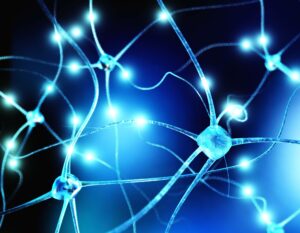When it comes to nutrient-packed superfoods, mutton liver is often overlooked in favor of trendier options like salmon or kale. However, this organ meat is a nutritional powerhouse loaded with vitamins, minerals, and high-quality protein, offering a range of impressive health benefits—from boosting brain function and immunity to supporting heart health and enhancing skin.
For centuries, organ meats have been a staple in many traditional cuisines. From rich curries in India to flavorful stews in the Middle East, mutton liver has been celebrated not only for its taste but also for its medicinal value. Whether pan-fried with garlic, slow-cooked in spices, or blended into a smooth pâté, it’s a delicious and deeply nourishing addition to your diet.
What makes mutton liver exceptional is its dense nutrient profile. It’s one of the richest dietary sources of iron, making it a must-have for those prone to anemia or fatigue. It also boasts sky-high levels of vitamin B12, vital for brain health and energy production. Plus, its abundance of vitamin A, zinc, and selenium makes it a natural immune booster and skin rejuvenator.
If you’ve been hesitant to try organ meats, this guide will show you why mutton liver deserves a place on your plate.
Let’s dive into its incredible health benefits and why it might just be one of the most underrated superfoods out there.
Nutritional Value
Here is the nutritional value of cooked mutton liver per 3-ounce (85-gram) serving:
- Energy: 187 kcal
- Protein: 26 g
- Total fat: 7.49 g
- Carbohydrate: 2.15 g
- Sodium: 47.6 mg
- Iron: 7.04 mg (39% Daily Value (DV))
- Magnesium: 18.7 mg (4% DV)
- Phosphorus: 357 mg (29% DV)
- Potassium: 188 mg (4% DV)
- Zinc: 6.71 mg (61% DV)
- Copper: 6.01 mg (668% DV)
- Manganese: 0.442 mg (19% DV)
- Selenium: 94.4 mcg (172% DV)
- Vitamin C: 3.4 mg (4% DV)
- Thiamin (B1): 0.196 mg (16% DV)
- Riboflavin (B2): 3.42 mg (263% DV)
- Niacin (B3): 10.4 mg (65% DV)
- Pantothenic acid (B5): 3.37 mg (67% DV)
- Vitamin B-6: 0.416 mg (24% DV)
- Folate: 62 mcg (16% DV)
- Vitamin B-12: 65 mcg (2708% DV)
- Vitamin A: 6370 mcg (708% DV)
It is to be noted that the nutritional value listed is for lamb liver, which is likely similar to mutton liver, though there may be slight differences due to the younger age of the lamb.
Health Benefits
Packed with protein, essential vitamins and minerals, mutton liver offers a number of health benefits.
1. High in Iron
Mutton liver is an excellent source of iron, making it a valuable food for preventing and managing iron deficiency anemia.
Iron is an essential mineral that helps in the production of hemoglobin, a protein in red blood cells which carries oxygen from the lungs to all parts of the body and iron deficiency is a common nutritional deficiency, particularly among women and children.
A 3.5-ounce (85-gram) serving of cooked mutton liver packs around 7 mg of iron—covering 39% of the daily value for women and an impressive 88% for men.
Along with iron, mutton liver is rich in vitamin B12, which supports red blood cell production, further enhancing its anemia-fighting properties.
Mutton liver is exceptionally rich in heme iron, the type of iron that is most easily absorbed by the body. This makes it an excellent dietary choice for preventing and treating anemia.
2. Packed with Protein
Protein is an essential macronutrient needed for muscle growth, repair, and overall body function.
3.5 ounces (85 grams) of mutton liver provides 26 grams of high-quality protein.
This makes mutton liver an excellent protein source for those looking to build or maintain muscle mass, as well as for individuals who need to meet higher protein requirements.
3. May Boost Immune System
Mutton liver is loaded with zinc and vitamin A, essential nutrients that play a significant role in immune function.
Vitamin A deficiency is associated with increased susceptibility to infections, altered immune responses, and impairment in the ability of epithelial tissue to act as a barrier to pathogens.
Zinc deficiency adversely affects immune function by impairing the formation, activation, and maturation of lymphocytes (a white blood cell that fights infections)
Together, these nutrients strengthen immunity by supporting antibody production, regulating inflammation, and strengthening your body’s defenses.
Adding mutton liver to your diet is a delicious way to keep your immune system strong and resilient.

4. May Improve Cognitive Function
Vitamin B12 and iron, both found in high amounts in mutton liver and are crucial for maintaining healthy brain function.
Vitamin B12 is essential for the development, myelination, and function of the central nervous system, which may directly impact cognitive performance.
Vitamin B12 deficiency is linked to impaired cognition, memory issues, and tingling or numbness—signs of poor myelination. Myelination, the process of forming a protective sheath around nerve fibers, speeds up nerve signals, improving brain function and communication between cells.
Iron ensures that the brain receives adequate oxygen, which is essential for cognitive functions such as memory and concentration.
Observational studies link anemia and iron deficiency to cognitive issues, suggesting iron supplements may help. A review of 14 trials found that supplementation improved attention, concentration, and IQ in anemic groups but didn’t boost memory, psychomotor skills, or academic performance. Larger, high-quality trials are needed to confirm these findings.
5. May Promote Healthy Skin
Healthy, glowing skin starts from within—and mutton liver can help you achieve it. Its high vitamin A content supports cell growth and repair, promoting a clearer, more youthful complexion.
Just an ounce (28-gram) serving of mutton liver provides you more than double the daily recommended intake of vitamin A, making it a true skin-nourishing powerhouse.
A 12-week trial on 60 adults (aged 50+) with moderate-severe skin aging compared two treatments: topical retinoic acid gel alone and combined with oral vitamin A (50,000 IU) and E. The combination reduced skin aging scores by 27%, outperforming the gel alone (22%), with both treatments well tolerated.
Mutton liver is also rich in the amino acids glycine and proline, which play a crucial role in collagen production—helping keep your skin firm, smooth, and youthful.
Additionally, mutton liver is an excellent source of biotin, also known as the beauty vitamin, which can enhance your skin, hair, and nail health, especially if you are deficient.
6. May Strengthen Bones and Teeth
Mutton liver contains a significant amount of phosphorus, a mineral that, along with calcium, is vital for maintaining strong bones and teeth.
A 3-ounce (100-gram) serving provides 357 mg of phosphorus, which is nearly one-thirds of your daily recommended value.
Phosphorus along with hydrogen and oxygen play an important role in biomineralisation, which includes formation and regulation of bones and teeth.
Pairing mutton liver with calcium- and vitamin D-rich foods helps strengthen your bones even further.
7. May Provide Increased Energy Levels
All B vitamins, except folate, are involved in atleast one or often in multiple steps of the body’s energy production process at the cellular level and mutton liver is an excellent source of these nutrients.
A sufficient supply of each B vitamin is essential for energy production and a deficiency in any of them can slow down energy production, leading to serious metabolic and health issues.
Each of these nutrients plays a role in energy production through various mechanisms, such as breaking down glucose, acting as cofactors or precursors, and supporting metabolic processes.
Additionally, mutton liver is packed with iron, which also plays a vital role in cellular energy production.

Incorporating Mutton Liver into Your Diet
While mutton liver offers numerous health benefits, it’s essential to enjoy it in moderation and as part of a balanced diet. Here are some delicious ways to incorporate mutton liver into your meals:
- Stir-fried Liver: Cook with onions, garlic, and your favorite spices for a quick and nutritious dish.
- Liver Pâté: Blend mutton liver with butter, herbs, and spices for a creamy spread on toast or crackers.
- Liver Curry: Prepare a flavorful curry with mutton liver, coconut milk, and aromatic spices.
Who Should Not Eat Mutton Liver?
While mutton liver benefits are numerous both nutritionally and physically, there are certain individuals who should avoid or limit their consumption due to specific health concerns. Here are some groups of people who should be cautious about eating mutton liver:
Individuals with Iron Overload Disorders: Mutton liver is exceptionally high in iron, and consuming it in large amounts can contribute to iron overload in the body.
Pregnant Women: While moderate consumption of mutton liver can provide essential nutrients like vitamin A and iron during pregnancy, excessive intake of vitamin A from animal sources, including liver, may increase the risk of birth defects.
Individuals with Hyperlipidemia: Mutton liver is relatively high in cholesterol, and consuming it regularly may raise blood cholesterol levels, especially in individuals with hyperlipidemia (high cholesterol).
Those with Gout: Mutton liver contains purines, which are substances that can be broken down into uric acid in the body. Excessive consumption of purine-rich foods like organ meats may increase uric acid levels and worsen the symptoms of gout, a type of arthritis caused by the accumulation of uric acid crystals in the joints.
Individuals with Kidney Disease: Mutton liver is high in protein and purines, which can put extra strain on the kidneys and may worsen kidney function in people with chronic kidney disease (CKD). People with CKD should follow a kidney-friendly diet that limits protein and purine intake, making mutton liver consumption unsuitable for them.
It’s essential to consult with a healthcare provider or registered dietitian before making significant changes to your diet, especially if you have underlying health conditions or dietary restrictions.
Precautions
Mutton liver is exceptionally rich in vitamin A, and consuming it in excess (over 100 times the DV) can lead to toxicity, causing symptoms like severe headache, blurred vision, nausea, dizziness, and muscle aches. In extreme cases, it can even result in coma or death. Even if you’re healthy, it’s best to limit your portion to 3-4 ounces per meal, no more than once a week.
For extra caution, it’s best to limit the portion to 40 grams per serving, as this provides vitamin A close to the tolerable upper intake level. You can balance it with lean cuts and other organ meats.
Tolerable Upper Intake Levels refer to the maximum daily nutrient intake that is unlikely to cause adverse health effects.


